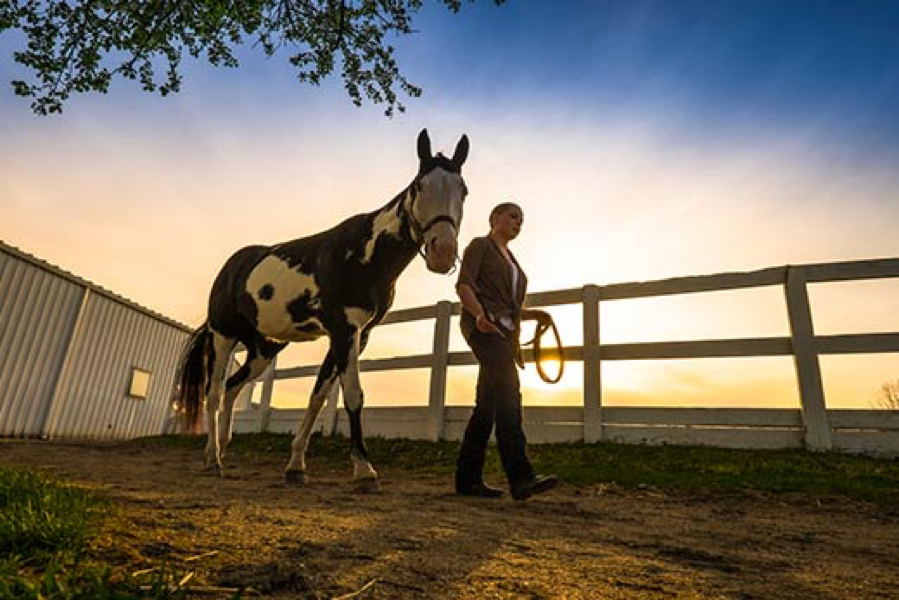Equestrian Career Spotlight: Horse Rescue
The Humane Society of Missouri’s Longmeadow Rescue Ranch in St. Louis, Missouri is a “haven for hundreds of abused and neglected horses, cows, goats, pigs, ducks and other farm animals.” According to its website, “the ranch is one of the most comprehensive horse and farm animal care and rehabilitation centers in the country.”
Rescue organizations all over the country work to help abused and neglected horses. They need faithful employees who believe in their missions — and a career in rescuing horses is among the most rewarding for equestrians.
Careers in horse rescue and rehabilitation can range from fundraising to training to management and administration. A few job titles include:
- Adoption counselor
- Veterinarian, vet tech, and animal care specialist
- Director of giving
- General manager
- Volunteer coordinator
- And more
On pursuing a career in this field, William Woods University Associate Professor and Equestrian Studies Division Chair Jennifer Petterson said “the best preparation is one that builds you as a non-profit manager, fundraiser and volunteer coordinator.”
William Woods University equestrian students interested in a career at a horse rescue should look into supplemental courses in social work, psychology, communications and even understanding accounting or fundraising through business courses like BMT357 – Non-Profit Management.
Those interested should recognize that no horse rescue organization is the same. Some rehab or retrain neglected horses. Others serve as adoption coordinators for horses whose owners are no longer able to properly care for them due to physical or financial reasons. Some take horses of various levels of need. It’s important to find one with a mission, strategy, and organization that matches your own rescue philosophies.
In an article on Horse Channel, Karen Gustin, Executive Director for the Kentucky Equine Humane Center (KyEHC) in Nicholasville, Kentucky said “You have to have persistent drive, enjoy working with people, have flexibility and possess attention to detail. You also cannot get discouraged or give up when things don’t go as planned. A positive attitude is imperative.”
Gustin explains that directing a rescue can be a hard job, but can also be very rewarding — watching a horse who has had a hard life come back an incredible and strong character.
Even if you’re not interested in a career, volunteering at a rescue in high school or college can be a great experience. You can meet all kinds of horses, understand and care for their needs, and see the inner workings of a nonprofit organization.
“It’s a great way to volunteer time and talents, and we do have current and former students who volunteer at rescues,” Petterson said.


